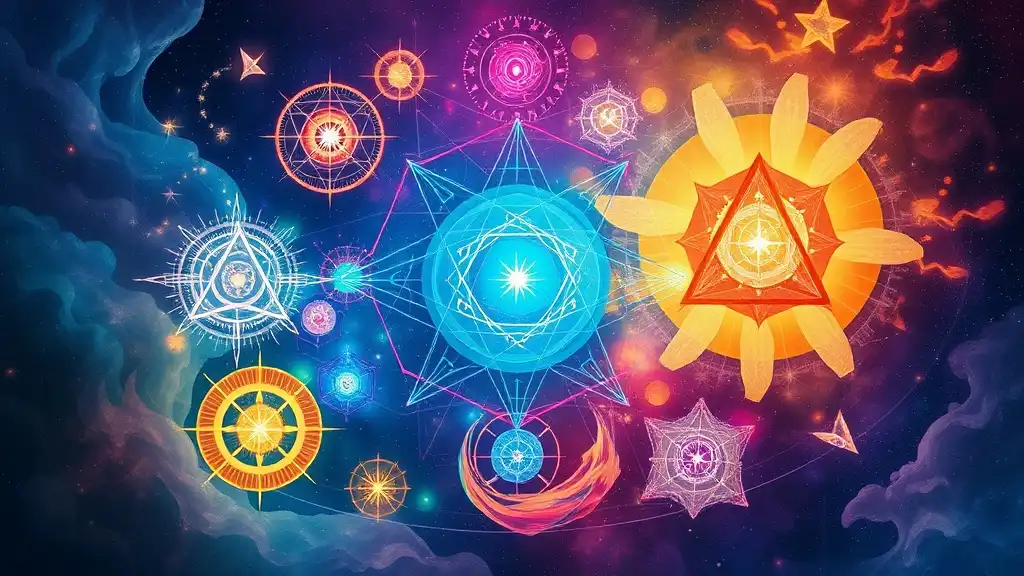The concept of the scapegoat has profound historical and spiritual significance, woven into the fabric of various cultures and communities. A scapegoat is more than just a vessel for blame; it symbolizes deeper feelings of guilt, shame, and the complexities of human interactions. This article explores the multi-faceted nature of the scapegoat, offering insights into its historical roots, spiritual meanings, and modern interpretations.
Historical Context of the Scapegoat
Ancient Practices
Historically, scapegoating can be traced back to ancient religious rituals, particularly in Judaism. During the Yom Kippur observance, a goat was symbolically burdened with the sins of the community and then sent into the wilderness. This act served not only as a means of purification but also highlighted the collective guilt experienced by the community. The ritual functioned as a powerful reminder of accountability and the shared weight of moral failings.
This practice wasn't unique to Judaism; many indigenous and ancient cultures employed similar methods. Scapegoating served to externalize communal guilt, allowing individuals to purge their sorrows and seek divine forgiveness through symbolic acts.
Literary References
Scapegoats have also played significant roles in literature and mythology. From the tragic figures in Greek myths to the outcasts in modern storytelling, scapegoats often represent the consequences of societal norms and biases. These literary examples remind us that scapegoating transcends mere blame, revealing societal flaws and deep-seated fears. Through these narratives, readers are invited to reflect on their own perceptions of guilt—both personally and collectively.

Spiritual Significance of the Scapegoat
Confronting Guilt and Shame
At its core, scapegoating involves the projection of one's feelings of guilt and shame onto another person or entity. In spiritual terms, these emotions can be incredibly burdensome, acting as chains that bind the spirit. By identifying someone as a scapegoat, individuals might feel temporary relief; however, this outward manifestation of blame fails to address the inner turmoil.
Recognizing the profound discomfort associated with guilt can lead to deeper spiritual healing. Instead of casting aside personal responsibility, individuals can confront their flaws, embracing them as part of their spiritual journey. This process of acknowledgment and acceptance fosters emotional maturity and spiritual growth.
The Role of Forgiveness
Forgiveness emerges as a crucial component in the discussion of scapegoating. When someone is labeled as a scapegoat, it often creates a cycle of blame that can be difficult to break. However, the act of forgiving those we have wronged—or who have wronged us—can catalyze profound transformation.
By choosing to practice compassionate forgiveness, we dissolve the barriers created by blame, allowing healing and understanding to flow. This practice can extend beyond interpersonal relationships to encompass self-forgiveness, freeing the spirit from guilt's heavy grip. Embracing forgiveness not only brings peace of mind but also deepens our spiritual connection to ourselves and the universe.

The Modern Interpretation of the Scapegoat
Scapegoats in Contemporary Society
In today's world, the tendency to scapegoat remains prevalent, especially in social and political arenas. When emotional discomfort arises, individuals and groups may instinctively shift blame onto others, seeking to alleviate their own feelings of responsibility. This behavior can lead to a culture of division, where people are marginalized as a way to deflect attention from complex, underlying issues.
Understanding this cycle is essential for personal and communal growth. It becomes crucial to reclaim accountability and encourage dialogue rather than blame. True progress demands that we confront the uncomfortable truths about our shared human experience.
Spiritual Growth Through Scapegoating
Identifying as a scapegoat can be a catalyst for spiritual growth. Experiencing and overcoming the stigma associated with being a scapegoat can lend strength and resilience. This journey often leads to the realization that we hold the power to transform adversity into empowerment.
Taking the time to reflect on one's experiences can reveal valuable lessons. The pain of being blamed can cultivate empathy and foster a deeper understanding of the human condition. By embracing these lessons, individuals can move beyond victimhood and emerge more spiritually attuned.

Scapegoating and Spiritual Practices
Using Rituals for Healing
Engaging in healing rituals can be particularly effective in addressing the emotional wounds associated with scapegoating. Creating personal rituals centered around forgiveness and letting go can facilitate healing. These rituals might include journaling about one’s feelings, conducting meditation sessions focused on self-compassion, or even creating physical representations of burdens to be released.
By crafting these rituals, individuals can symbolically release the emotional weight they’ve been carrying. This act acknowledges pain while paving the way toward healing and personal liberation.
Finding Balance and Harmony
Finding balance and harmony often requires us to embrace our shadow selves—the parts of us that we are uncomfortable with or wish to hide. Scapegoating can manifest from a refusal to acknowledge these aspects. Instead of shunning them, we can confront and integrate them into our understanding of ourselves.
Techniques for self-reflection, such as mindfulness practices or therapy, can help illuminate these shadow aspects, promoting a more comprehensive understanding of one’s spiritual journey. By accepting all facets of ourselves, we cultivate a deeper sense of peace, paving the way for spiritual harmony.

Conclusion
The concept of the scapegoat reveals critical insights into our shared human experiences—guilt, shame, forgiveness, and ultimately, spiritual growth. By recognizing scapegoating within ourselves and society, we can embrace a journey toward compassion and understanding. This path not only promotes healing for individuals but also for communities, encouraging a more united approach to the challenges we face together. As we navigate our spiritual journeys, let us strive to confront our own burdens instead of casting them onto others, turning guilt into grace with love and understanding.



















